Fascism and Nazism
Fascism in Italy
- The term ‘fascism’ is of Italian origin.
- It was first used for the movement which started in Italy under the leadership of Benito Mussolini.
- Mussolini had organised armed gangs against socialists and communists in 1919.
Conditions that led to rise of Fascism in Italy
- The Italian government shown little concern for the welfare of the agricultural and industrial workers whose conditions were miserable in the extreme. It instead, plunged Italy into the First World War in hope of gaining colonies.
- However, the peace treaties failed to satisfy her ambitions. About 7 lakh Italians were killed in the war. The conditions of the people had worsened further.
- The growing strength of socialist movement in Italy posed a threat to the existing system.
- Italian government at the time was dominated by capitalists & landlords.
- These sections began to support antidemocratic movements which promised to save them from the danger of socialism as well as to satisfy their colonial aspirations.
The movement started by Mussolini was one such movement. His armed gangs were used by landlords and industrialists to organize violence against socialists and communists. A systematic campaign of terrorism and murder was launched but the government showed little interest in curbing it.
Rise of Benito Mussolini
- In 1921, elections were held in Italy. However, no single party could win a majority and no stable government could be formed.
- In spite of the terror organized by Mussolini’s gangs, his party could get only 35 seats while the socialists and communists together won 138 seats.
- Mussolini openly talked of seizing power. In October 1922, he organized a march on Rome.
- The government of Italy did not show any sign of resistance against the volunteers of Mussolini.
- Instead, the king of Italy invited Mussolini to join the government.
- Thus without firing a shot, fascists under Mussolini’s leadership came to power in Italy. The takeover of the government by fascists was followed by a reign of terror.
- The socialist movement was suppressed and many socialist and communist leaders were either jailed or killed.
- In 1926 all political parties except Mussolini’s party were banned.
The victory of fascism in Italy was neither the result of a victory in elections nor of a popular uprising.
The government of Italy was handed over to the fascists because the ruling classes of Italy considered democracy and socialism as threats to their power.
Impact of Rise of Fascism
- The fascists believed that there could be no harmony between two or more nations.
- They glorified war & openly advocated the policy of expansion and said that nations which do not expand cannot survive for long.
- Victory of fascism not only led to the destruction of democracy and the suppression of socialist movement, but it also led to the preparation for war.
Nazism in Germany
Nazism which was the German version of fascism was much more sinister than the original Italian version. The Nazis, under the leadership of Adolf Hitler, established the most barbarous dictatorship of modern times.
- The outbreak of revolution in Germany towards the end of the First World War led to the collapse of the German monarchy.
- However, even though Germany became a republic, the forces behind the monarchy the industrialists, the big landowners and the officers of the army remained quite powerful.
- The government of German republic was not able to destroy their power.
- These forces began to turn to the anti-democratic forces represented by Nazism to extend their power and to check the power of the socialist movement.
- The term ‘Nazism’ is shorter version of the National Socialist German Workers’ Party, founded by Hitler in 1921.
Rise of Nazism in Germany
- Like Mussolini, Hitler also planned to capture power through a march on Berlin.
- However, he was arrested & jailed, but released long before his term was over.
- In jail he wrote his book Mein Kampf (literal meaning ‘My Struggle’) which expressed some of the most monstrous ideas of the Nazi movement.
- He glorified the use of force & brutality, & the rule by a great leader & ridiculed internationalism, peace and democracy.
- He preached extreme hatred against the German Jews who were blamed not only for the defeat of Germany in the First World War but for all the ills of Germany.
- He glorified violent nationalism and extolled war.
- The dreadful ideas of the Nazis found favour with the army, the industrialists, the big landowners and the anti-republican politicians.
- They began to look upon Hitler as the saviour of Germany.
Factors that led to rise of fascism
- Nazis capitalized on the sense of humiliation which many Germans felt at their defeat in the war and the unjust provisions of the Treaty of Versailles.
- They also exploited the misery of the people which had worsened due to the reparations which Germany was made to pay to the Allied powers.
- In 1929 occurred the most serious economic crisis which affected all the capitalist countries of the world.
- As a result of this crisis, 8 million workers, about half of the working population of Germany, were rendered unemployed.
- It was during this period, the Nazi Party, which was no more than a conspiratorial group in the beginning, began to spread its influence.
- Social Democratic Party and Communist Party were powerful parties with huge following.
- In the elections held in Germany before Hitler came to power, the Nazi Party had polled less votes than the Socialist and Communist vote put together.
- It had won only 196 seats out of a total of about 650.
- Socialist and Communist parties, however, failed to unite against the Nazis.
- Thus, the victory of Nazism in Germany, like that of fascism in Italy, was neither the outcome of a popular uprising, nor the result of a sham march on Berlin such as Mussolini’s on Rome. Hitler’s coming to power was the result of political intrigues.
Inspite of poor showing in elections, Hitler was appointed Chancellor of Germany by the President of Germany in 1933. Within a few weeks, the entire fabric of democracy in Germany was shattered.
- Soon after coming to power, Hitler ordered fresh elections and let loose a reign of terror.
- Assassination of anti-Nazi leaders was organized on a large scale.
- Reichstag (Parliament) building was set on fire by the Nazis.
- The Communist Party Germany was blamed for the fire and was suppressed.
- In spite of the terror organized by the Nazis, Nazi Party could not win a majority of seats in Parliament. However, Hitler assumed dictatorial powers and, in 1934, became the President.
- Trade unions were suppressed & socialists, communists & anti Nazi political leaders were exterminated.
- Nazis started huge bonfires to burn the works of some of the best writers of Germany & other countries.
- Besides socialists and communists, Jews were made victims of an organized campaign of humiliation & violence.
Within a few years they were to be completely exterminated. Simultaneously, a massive programme of militarization was launched and preparations for war began. The victory of Nazism was a calamity not only for the German people but for entire Europe and many other parts of the world.
Comparison of Fascism vs Nazism
Similarity between Fascism & Nazism
- Both were anti-communist and supported by wealthy capitalist and industrialists.
- Both aimed for totalitarian state and controlled industry, agriculture and the way of life of the people.
- Attempted to make the country self-sufficient.
- Emphasized the supremacy of the state. Glorified war, nationalism and cult of the leader.
- Rebirth of the nation was given prime importance. Education was highly supervised.
- Indoctrination of young mind and blind obedience to state was taught.
Differences between Fascism & Nazism
- Fascism never seemed to take deep roots in Italy as it did in Germany.
- Italian system was not as efficient as Germany. Italians could not achieve the stated goals of self-sufficiency and removal of unemployment.
- Italian system was not as ruthless as that in Germany and there were no mass atrocities.
- Italian fascism was not anti-Jewish or racist. Mussolini was more successful with his religious policies.
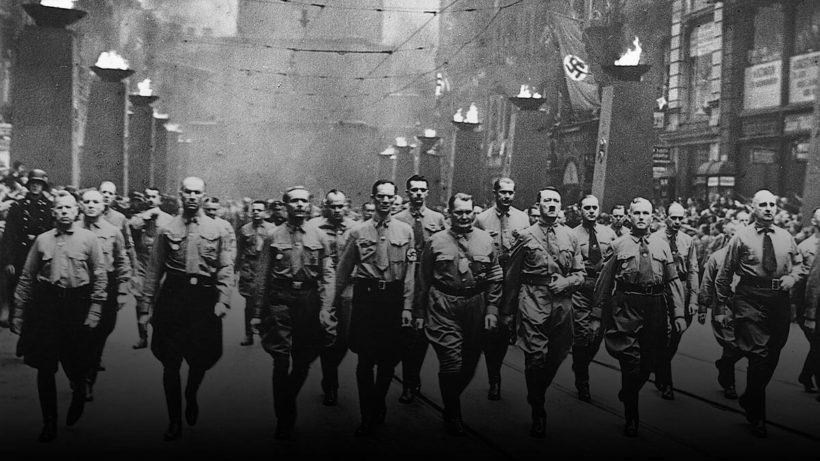


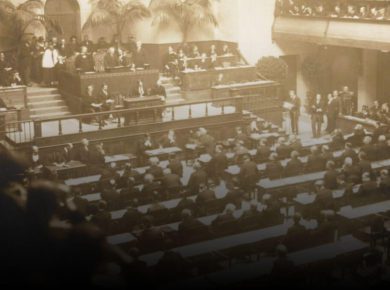

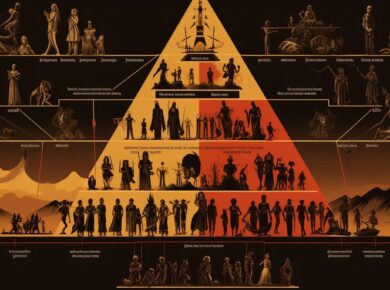
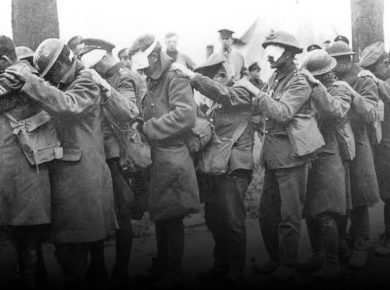
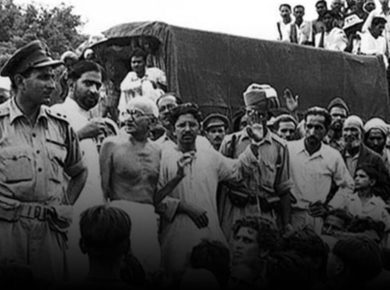
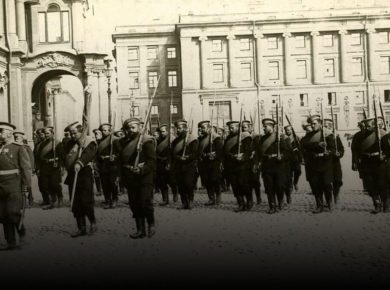
1 comment
thankyou very much to share the knowledge.